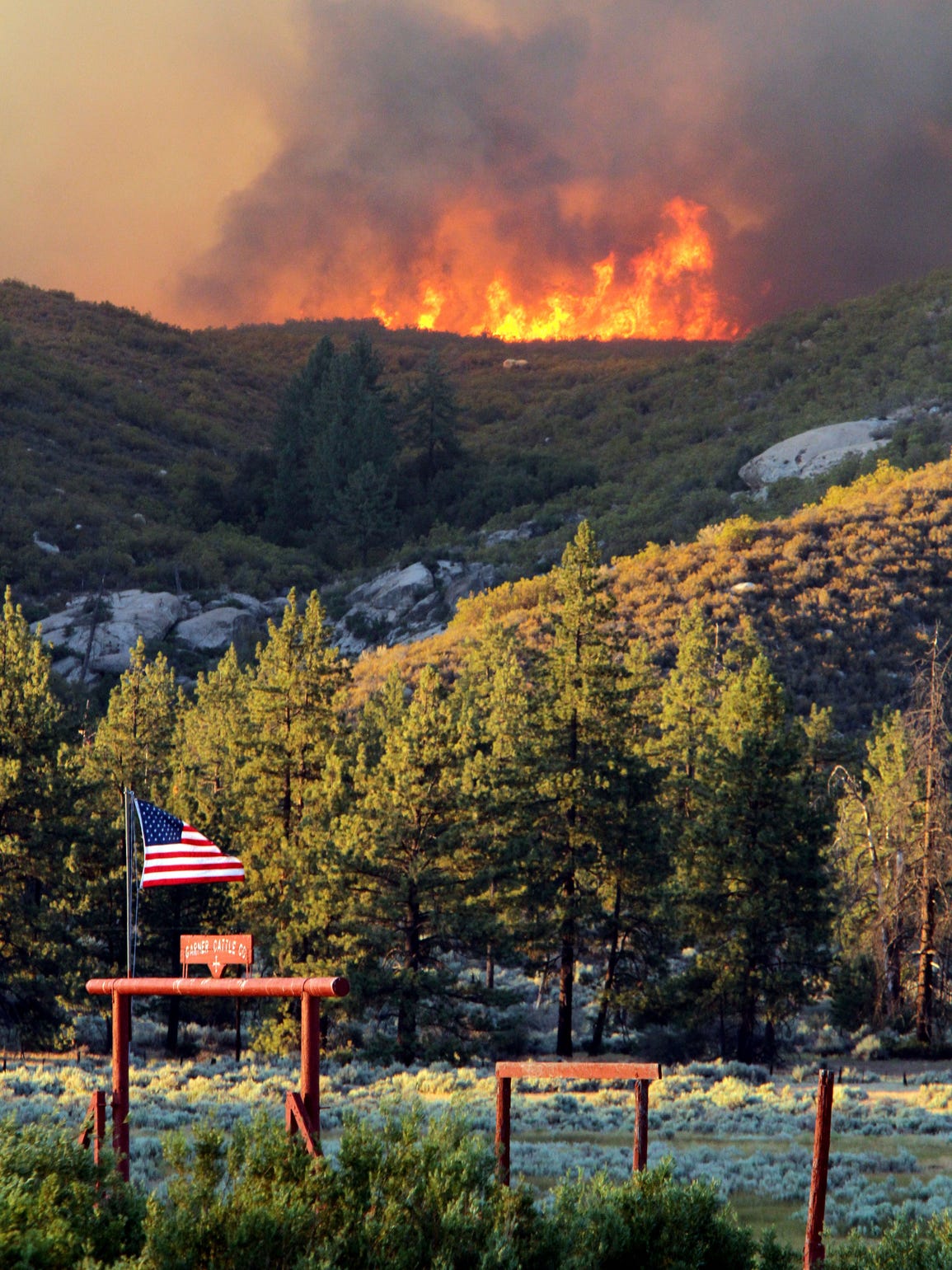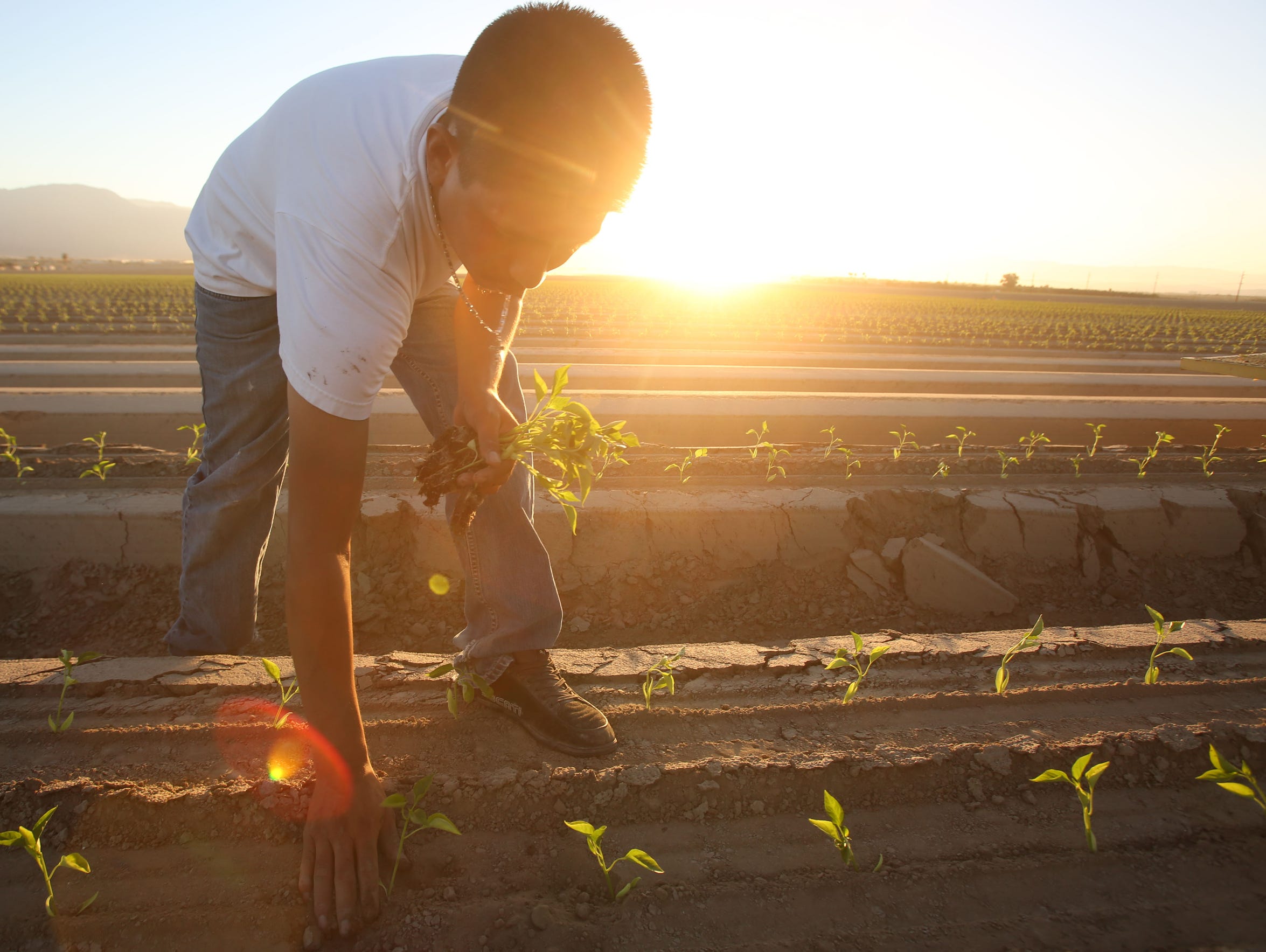
In the News
Climate Change Far More than an Environmental Issue
-
Focus Areas
Environmental Health -
Issues
Climate Change -
Programs
Center for Climate Change and Health
GLOBAL WARMING IS ALREADY HARMING HUMAN HEALTH, THE ECONOMY AND NATIONAL SECURITY
 Climate change isn’t just an environmental issue. At least not in the traditional sense.
Climate change isn’t just an environmental issue. At least not in the traditional sense.
Global warming bears all the hallmarks of environmental catastrophe: dwindling rivers, raging wildfires, dying animals and more. But those consequences aren’t even half the story. Experts say climate change could devastate human health, the economy and national security, making the world a more dangerous place to live and widening the gap between the rich and the poor.
In many places, people are already feeling those impacts.
Climate-linked heat waves, disease outbreaks and food shortages have already killed an untold number of people. Droughts, hurricanes and wildfires made more likely by climate change have exacted a huge economic toll, as have rising sea levels. A growing body of research indicates that a severe drought helped kindle the Syrian Civil War— just one example of why the Pentagon considers climate change a national security “threat multiplier.”
“From almost any perspective that you choose to look at this from, it makes sense to stop the indiscriminate burning of fossil fuels, to stop our heavy reliance on energy sources from volatile, dangerous parts of the world, to turn toward energy strategies that will be safer, healthier, more sustainable and create more jobs and opportunities,” said Rep. Jared Huffman, D-San Rafael.
The Desert Sun spoke with half a dozen experts about how climate change affects human health, the economy and national security. Here’s a breakdown of what they said.
Human health
Climate change is complicated, but one of its biggest health impacts is easy to understand: As the world gets hotter, more people will get sick or die due to extreme heat.
In 2014, the National Climate Assessment — a collaboration between a dozen government agencies — released its latest report detailing the effects of global warming in the United States. The report noted that extreme summer heat is already on the rise, and that heat waves “are projected to increase in frequency, intensity, and duration.” Across the country, the hottest days could be 10 to 15 degrees Fahrenheit warmer by 2100 if nothing is done to curb greenhouse gas emissions.
Over the last 30 years, nearly 4,000 people have died due to heat in the United States, according to the National Weather Service. In Russia, a 2010 heat wave killed more than 50,000 people — and it was made three times more likely by climate change, one study found.
“It’s quite likely that heat waves are getting more severe and more frequent because of climate change,” said Howard Frumkin, dean of the University of Washington’s School of Public Health.
As the world heats up, illnesses that once were confined to the tropics are starting to spread north and south, often because rising temperatures create ideal conditions for the heat-loving insects that carry them. Frumkin pointed to dengue fever and Lyme disease, which he said have taken root in the United States due to changing climate conditions. Some scientists believe global warming will help mosquitoes carrying Zika virus spread further into the United States.
 Frumkin predicted that climate change’s most significant health consequences won’t come from extreme heat or chaotic weather, but rather from damage to agriculture. Rising temperatures are expected to reduce global food production, because some crops don’t grow as well in high heat and because rainfall will become more unreliable in certain regions.
Frumkin predicted that climate change’s most significant health consequences won’t come from extreme heat or chaotic weather, but rather from damage to agriculture. Rising temperatures are expected to reduce global food production, because some crops don’t grow as well in high heat and because rainfall will become more unreliable in certain regions.
In many developing countries, lower food production could mean more deaths from starvation and undernutrition. In countries like the United States, it could mean higher food prices. When food prices have gone up in the past, Frumkin said, poorer Americans have increasingly turned toward cheaper, lower-nutrient foods that contribute to health problems like obesity, diabetes and high blood pressure.
“We may aggravate our chronic disease problems,” he said.
Like many of the effects of climate change, reduced food production will hit the world’s most vulnerable people the hardest, with poor countries suffering more than rich countries. In the United States, the poor and people of color are expected to experience the worst consequences from global warming.
Linda Rudolph, director of the Climate Change and Public Health Project at the nonprofit Public Health Institute, called global warming “a double whammy for people of color and low-income communities.” Those communities already suffer disproportionately from chronic health issues like asthma, heart diseases and diabetes, Rudolph said, making them more vulnerable to smog, wildfire smoke and other air pollutants associated with climate change or the burning of fossil fuels. Agricultural workers face some of the greatest risks, she said, because they spend so much time laboring under the hot sun.
“If you live in poor-quality housing where you don’t have decent screens on windows, you’re more susceptible to being bitten by mosquitoes,” Rudolph said. “If you’re poor and already having a hard time buying enough food at the end of every month, then when food prices go up, you’re at greater risk of food insecurity, and at greater chronic disease risk.”
Many of the power plants that spew planet-warming greenhouse gases also emit local air pollutants like sulfur dioxide, nitrogen oxides, mercury and particulate matter. Cutting carbon emissions, experts say, would also help to reduce those pollutants, which are most prevalent in poor communities.
It’s hard to count the number of deaths directly attributable to global warming. A 2012 report from the international humanitarian group DARA estimated that climate change already kills 400,000 people per year, mostly through hunger and disease. The World Health Organization estimates that by 2030, climate change will be responsible for about 240,000 deaths per year.
“It’s only going to get worse,” Rudolph said. “The choices that we make today to reduce carbon pollution from coal plants, or reduce carbon pollution from our cars — we can still make changes that will reduce the magnitude of the longer-term impacts on the health of our children.”
Economy
Climate change is expected to wreak havoc on our pocketbooks, too.
It’s hard to know how many dollars and cents global warming will cost the world. But some experts have tried to quantify the threat. Among them are researchers working with the Risky Business Project, a bipartisan initiative convened by former New York City Mayor Michael Bloomberg, liberal financier Tom Steyer, and Henry Paulson, who served as Treasury secretary under President George W. Bush.
In a 2014 report, the Risky Business Project found that between $238 billion and $507 billion worth of coastal property will likely be below sea level in the United States by 2100, if current trends continue. There’s a small but not insignificant chance that number could reach $701 billion.
The group also estimated that by 2100, the average American will probably experience between 45 and 96 days each year over 95 degrees Fahrenheit. That heat could reduce the productivity of outdoor workers by as much as 3 percent, the report found, not to mention lead to more deaths. Farm yields could drop as much as 70 percent in parts of the South and Midwest, although some of that loss could be made up by geographic shifts in crop production. Energy demand could shoot up as people use more air conditioning, especially in the Southwest and Southeast.
In a 2014 essay, Paulson compared climate change to the 2008 financial meltdown. Failing to act on climate, he wrote, would be “even more serious” than America’s failure to avert the financial crisis.
“The carbon dioxide and other greenhouse gases that we emit into the atmosphere today will remain there for centuries, and government will not be able to avert catastrophe at the last minute,” he wrote. “It’s as if we’re watching as we fly slow motion toward a giant mountain. We can see the crash coming, but we’re sitting on our hands instead of altering course.”
Marshall Burke, an economist and professor of Earth system science at Stanford University, has studied the impacts of higher temperatures on labor and agricultural productivity. He co-authored a study last year finding that by 2100, unchecked climate change could make the world 23 percent poorer than it otherwise would have been, in terms of gross domestic product per person.
The United States would fare worse than the world as a whole, ending up 36 percent poorer than it otherwise would have been, Burke and two other professors found.
They reached that number by looking at how countries performed economically in hotter years versus colder years from 1960 through 2010, once other factors were removed from the equation. They found that economies generally did worse during hot years, all else held equal. Then they estimated how temperatures will change over the next century, under a scenario where humanity does little or nothing to stem the emission of greenhouse gases.
“I think people intuitively understand that they feel less productive on hot days. And imagine you now have a lot of those hot days,” Burke said.
Since most poor countries are already hot to begin with, Burke said, their economies will suffer the most. On the other hand, some rich countries — including Canada and much of Europe — are relatively cold right now, meaning they could actually experience some economic gains.
Continue reading the full article at USA Today.
Originally published by USA Today
More Updates
Work With Us
You change the world. We do the rest. Explore fiscal sponsorship at PHI.
Support Us
Together, we can accelerate our response to public health’s most critical issues.
Find Employment
Begin your career at the Public Health Institute.



